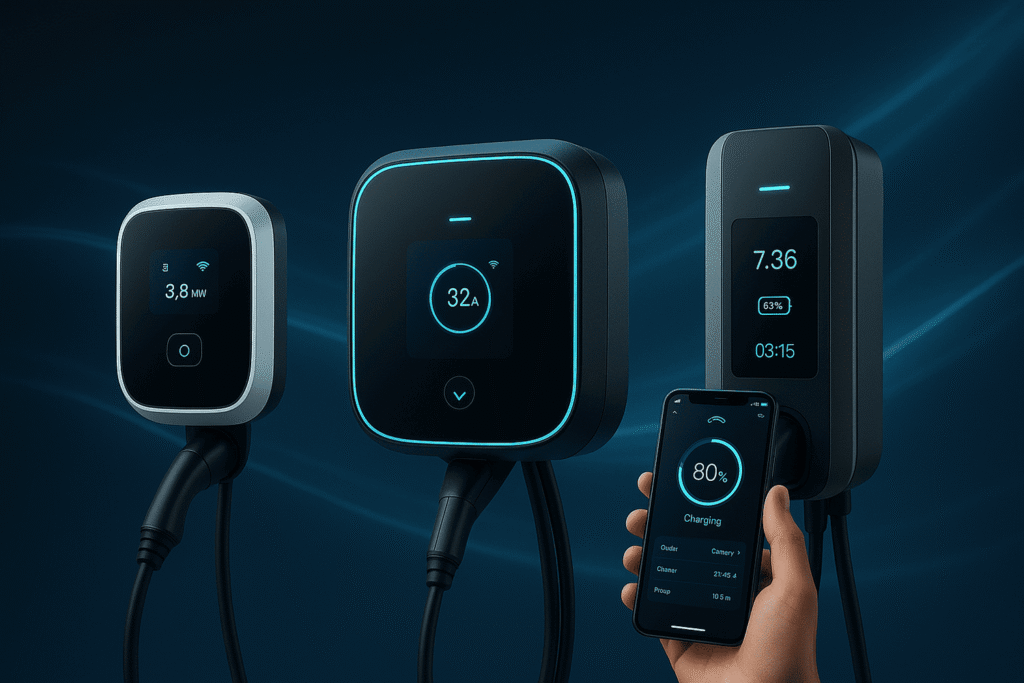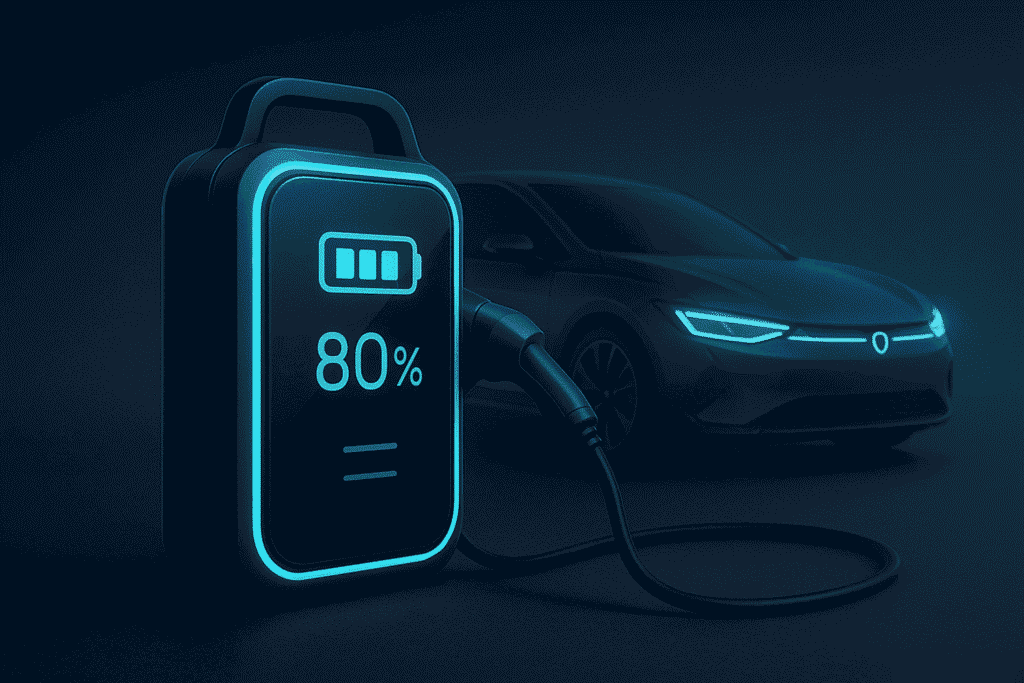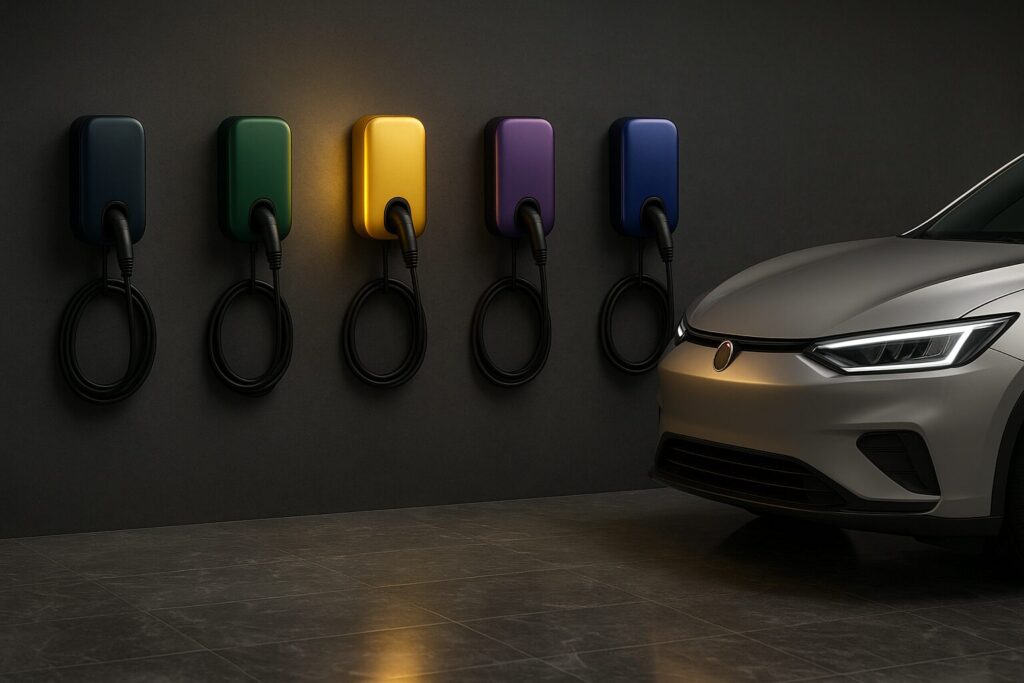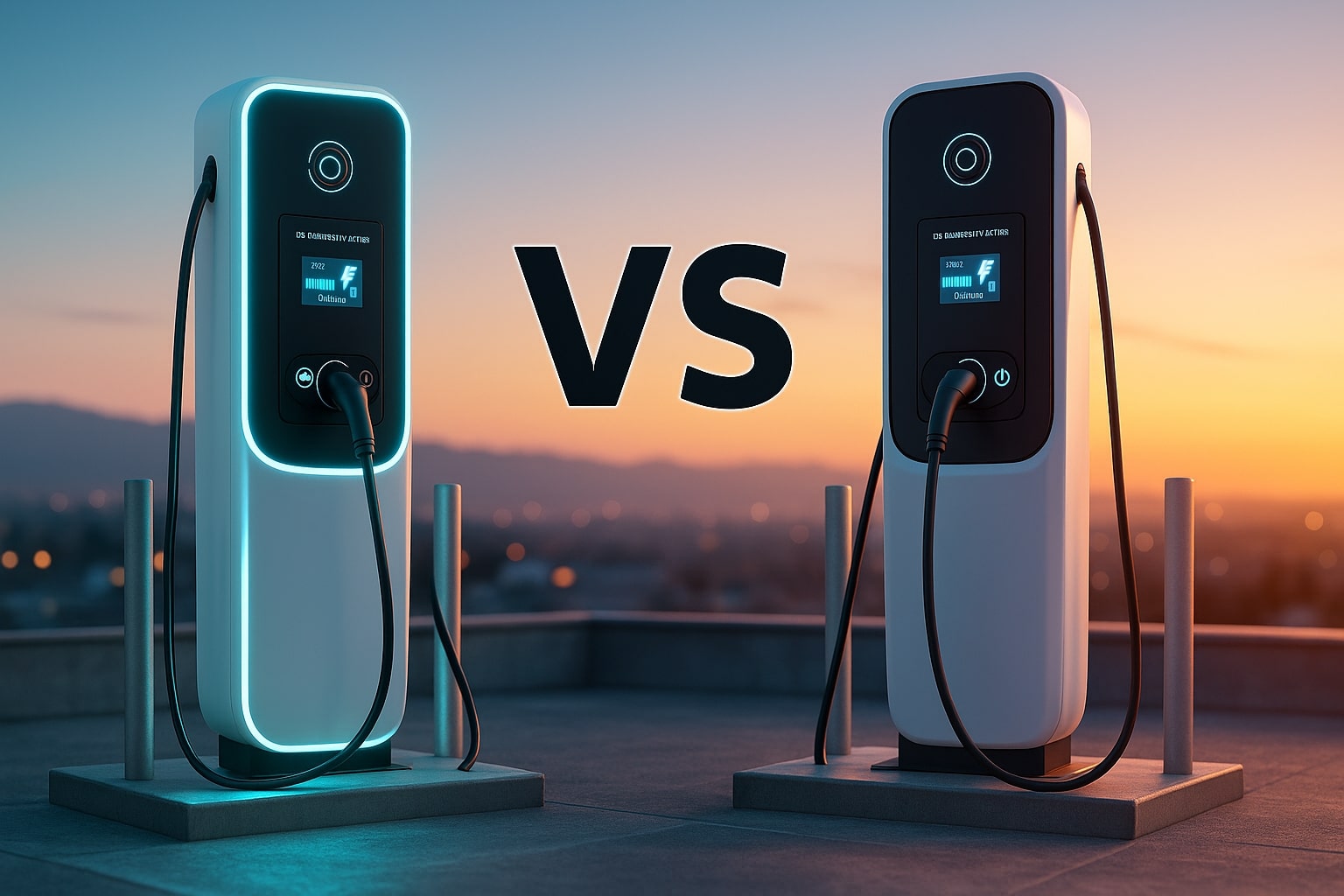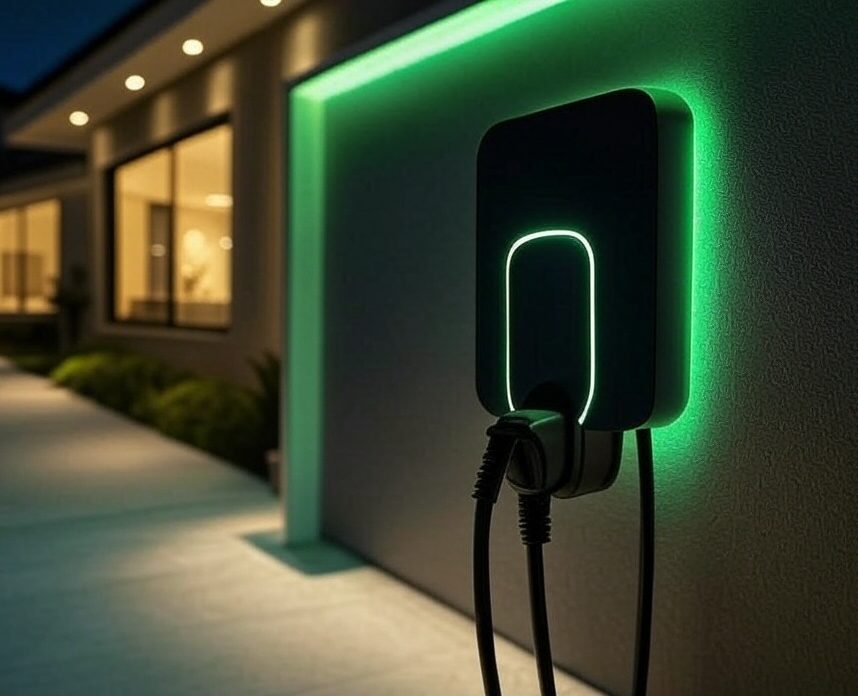EV Chargers: Top Picks
Choosing the right EV charger can be challenging. We’ve handpicked the top chargers for home, travel, and fast charging, focusing on compatibility, speed, and portability.
Discover the Top EV Chargers
Whether you’re charging at home, on the road, or need a fast and portable solution, our best picks highlight the standout EV chargers in the market. Check our recommendations below.
Charge Your EV with Confidence!
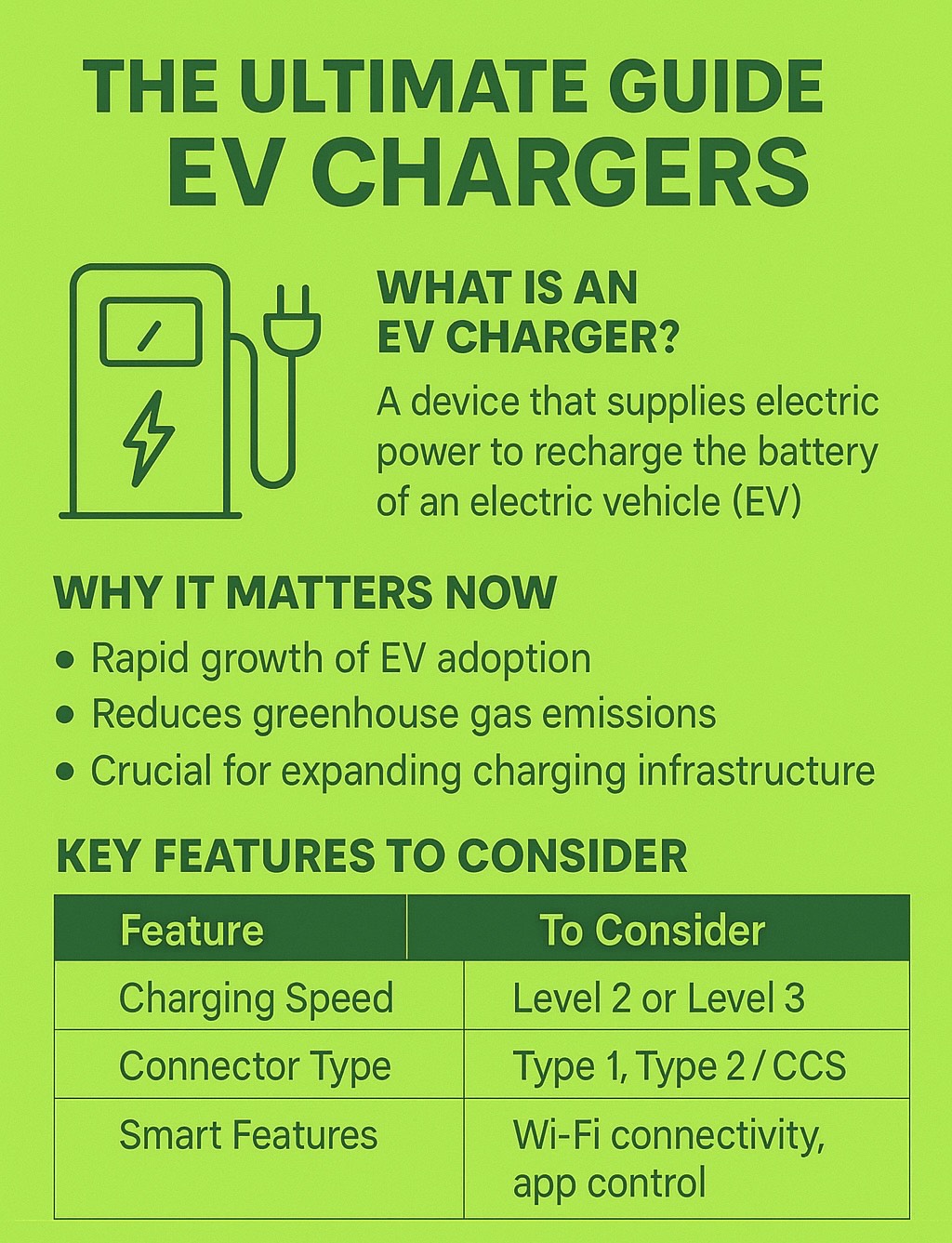
Stay powered on the road with the right EV charger for your needs.
EV Charger Questions Answered
What is the difference between Type 1 and Type 2 EV chargers for home installation?
Type 1 chargers have a five-pin design and support slower charging rates (3.6kW to 7.4kW), mainly using a single-phase supply. Type 2 chargers, now the UK and European standard, have a seven-pin design, support both single- and three-phase charging, and can deliver faster speeds—up to 22kW at home and 43kW at public stations.
How do I choose the right EV charger speed for my electric car and parking habits?
For overnight home charging, a 7kW charger is most common and suitable. If you need faster charging, public chargers range from 22kW (fast) to 350kW (ultra-rapid). The best choice depends on your car’s compatibility and how long you typically park at the charging location.
What are the main types of connectors used in UK EV chargers?
The most common connectors are Type 2 (for most new EVs), CCS (Combined Charging System) for rapid and ultra-rapid charging, and CHAdeMO, which is being phased out but still used by some older Japanese models.
What should I consider when installing an EV charger at home?
Key factors include the location (easy access and proximity to your parking spot), the type of charger, your home’s electrical capacity, and whether you need additional features like surge protection or longer cabling. Professional installation is required to ensure safety and compliance.
Can I install an EV charger myself, or do I need a professional?
EV chargers must be installed by a qualified professional to comply with safety standards and regulations. Installers will also ensure the charger is positioned correctly, wired safely, and tested before use.
What extra costs might arise during a home EV charger installation?
Additional costs can include upgrading gas or water bonding, installing surge protection devices, running longer cabling, or complex groundworks if your setup is not standard. Most homes only need standard installation, but unique layouts or requirements may increase the price.
